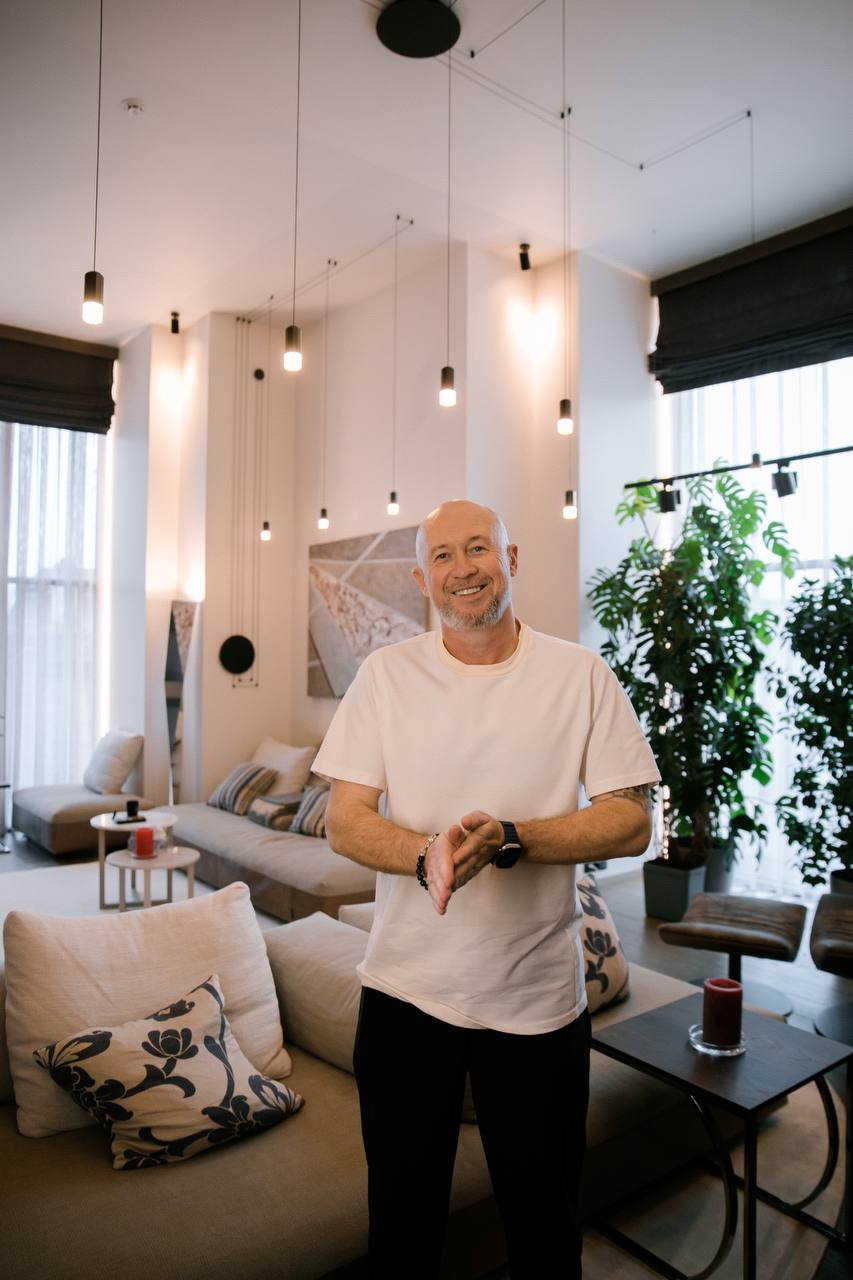THE SIX HABITS OF HAPPY PEOPLE

There's a common theme: the habits of successful people. In my view, it's not entirely accurate. According to statistics, only 2-3% of entrepreneurs achieve success in business. Their entire lives are focused on achieving success, and their habits too. This raises the question: why should the remaining 97% of the population copy the lifestyle and behavior of these 3%?
Success doesn't automatically lead to happiness. I know this from personal experience. I'm 50 years old, and I've dedicated 30 years to my business. I can call myself a successful businessman: I've built an international company, become a millionaire, traveled to half the world, and fulfilled my material desires.
But all of this didn't make me happy. It turns out that success and happiness aren't as closely linked as people often say. To become happy, I had to put in just as much effort as I did to become successful. I've shared my experiences in the book "The Happiness System."
Happiness is a top-level goal that all other goals in business, health, relationships, and other areas of life should serve. Unlike success, anyone on the planet can be happy: there are no limits to happiness. So, what habits can help you achieve this goal?
Habit 1: Smile, Maintain Good Posture, and Stay Positive – All at Once
This isn't some mystical concept. Here's the deal: unhappy people often look gloomy, hunched over, and negative. On the other hand, healthy individuals typically have good posture and smile. It doesn't matter how you feel in that moment—put on the image of a healthy, happy person, even if your smile is unnatural. When you do this, your body starts producing a chemical called acetylcholinesterase, which starts the healing process. I first learned about this at a retreat in 2004 from our teacher, Mirzakarim Norbekov. He used to say, "You can't be happy if you're not well." On the island of Crete, several dozen businessmen from different countries gathered. Each morning, they practiced the habit of a positive attitude, smiles, and good posture by the seashore, even if they were wealthy, successful men who had achieved it all. This habit became a fundamental part of my life. If you look like a healthy, happy, and content person, sooner or later, you become one.
Habit 2: Drink Water. A Lot of Water!
Read the book "Your Body's Many Cries for Water" by Fereydoon Batmanghelidj. The author explains in simple terms why our bodies need water and how a lack of it can lead to various health problems. Like any long-term endeavour , it starts with enthusiasm but may later lead to fatigue, disappointment, and a decline in motivation. Personally, it took me about six months to get used to drinking plenty of water. Now, I make it a point to drink a couple of glasses in the morning before breakfast and a half-liter before lunch. I always keep a pitcher of clean water on the desk next to my work table in the office. I start it before lunch and finish it by the end of the workday. At home, I drink a couple more glasses in the evening. In my car, there's always a bottle of water within reach, and I keep an extra pack in the trunk. Drinking plenty of water is especially important during long drives. In total, I consume around three liters of water during the day. Everyone has their own recommended intake, and there are many formulas to calculate it. Some say it's better not to drink water right before bedtime or at night to avoid interrupting your sleep and preventing edema. Nevertheless, I always keep a water bottle or a gym bottle near my bed. If I wake up at night and feel thirsty, I don't deny myself a drink.
Habit 3: Get Moving – Walking, Running, Sports, Swimming
Physical activity is essential, but it's important to choose an activity that suits your pace and mood. Following trends in happiness isn't necessarily good advice. Just because everyone is running or swimming across the Bosphorus doesn't mean you need to do the same. I love to stay active by working out in the gym and taking walks in the woods. The motivation is simple: to maintain a comfortable weight, a good shape, and a healthy body that keeps me sharp in my endeavors. I typically aim to go to the gym three times a week. Once a year, I take place in an intense program with a specific diet and four short workouts each week. This intensive program lasts anywhere from five to eight weeks, depending on how it goes.
Habit 4: Eat Right and Cleanse Your Body
The main idea here is that your diet should be healthy, but its "healthiness" shouldn't decrease your quality of life. These days, I eat healthily, even after 6 PM, but I avoid eating right before bedtime. I consume quality foods like meat, fish, vegetables, fruits, and nuts. I enjoy a good steak with a glass of red wine, and it makes me feel great. However, it took several experiments to find what works best for me: I've tried being a vegan, a raw food enthusiast, and followed various complex diets. Over time, I developed my own formula: eat everything (without going overboard), practice a detox diet several times a year (reducing carbs and eliminating alcohol), and engage in a conscious 10-day fasting period three to four times a year. I've found that fasting is the most effective method to cleanse not only your body but also your mind. I've been practicing this fasting habit for six years now, including four 10-day fasting periods and 36-hour fasting sessions from Sunday to Tuesday.
Habit 5: Take Time to Rest
Back when I was in the operating room and went on vacation, I used to keep it a secret. I didn't tell anyone in the company that I was on vacation because I felt embarrassed about it. During a diving trip, I met a Latvian businessman named Alexander. He was over sixty, and I was in my mid-thirties at the time. For years, Alexander had been a professional underwater photographer. His regular schedule included four skiing trips and eight to twelve diving trips per year, typically to places like Indonesia, the Philippines, and Malaysia.
I asked him, "How do you manage everything?" knowing that he was a successful multimillionaire who didn't just luck into his wealth or resort to corruption. He replied, "Well, Sasha, sometimes you have to choose between work and travel... I usually choose travel." He went on to explain with examples how making this choice had a positive impact on his business. Shifting your focus and relieving stress opens you up to new ideas and helps you find solutions to complex problems.
That conversation helped me reassess my attitude toward taking breaks. Now, I plan my year in advance, marking down trips on my calendar and then scheduling work meetings, conferences, and business trips around them. I understand that it may seem easy to live this way if you're a successful businessman who has transitioned out of the operating room and can afford to dive in the Maldives. However, there's really no difference in terms of who you are, what you do, and what you can afford. Rest is a crucial and integral part of both success and happiness. A person who feels overwhelmed by the burdens of work, tormented by guilt whenever they step out of the city for a weekend, is far from the path to happiness. It's not about where you go for a change of scenery; it's about how you approach it.
Habit 6: Capture Happy Moments (HM), Don't Be a Robot
Simple things like a beautiful sunset, children playing in the sandbox, a boat gently rocking on the sea, your favorite song playing in the car, or a scoop of ice cream... These are the moments that brought you joy in the moment, lifted your spirits, or reminded you of something wonderful from the past. Happiness is woven from a series of these moments. Record your happy moments in a diary, notebook, smartphone notes, or share them in Instagram Stories. By reviewing your HMs, you'll realize that happiness is a simple, familiar feeling, not something distant and unattainable.
Notice, I'm not listing typical habits like "don't judge people" or "be accepting." Why? Because I'm a practitioner, not a theorist, and I can recommend only what actually works, not just what sounds nice.
